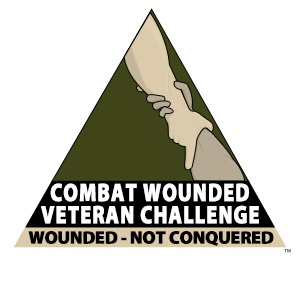Past Challenges
Sailing Challenge 2019
Summary of Objectives:
Conduct a Neuro-Cognitive Assessment (NCA) under the auspices of an Institutional Review Board (IRB) to measure the functionality/performance of the brain (memory, observation, processing, prioritizing, etc.); conduct a Quality of Life Assessment (QLA) to quantify the mood/emotion of the person. The NCA will be conducted on-site at the beginning and end of the Sailing Challenge by medical doctors. The QLA will be self-administered before and after the Sailing Challenge, and is much like others used on previous CWVC challenges. Challenge participants may waive participation.
Summary of Challenge:
The week may be summarized on three levels.
First, on the sailing and the weather: Tropical Storm Imelda hit Galveston with record rains over extended days (rainfall exceeded 40 inches in 24 hours in some regions). Since each rainy day seemed like the one before (and the day after, too!), CWVC participants found “No Easy Day” (by SEAL Mark Owen). The “Challenge” for Sea Star Base Galveston (SSBG) became developing alternate plans, which SSBG executed with aplomb. These included special guest visit from a retired NASA astronaut, and a behind-the-scenes tour of a 1.5-million-gallon aquarium teeming with creatures from tuxedo-clad penguins to seals, stingrays, and sharks. The storm was followed by beautiful sailing weather over Sea Star Base Galveston (southeast breezes 14-17 knots under sunny skies). Shore instruction followed by on-the-water drills, skills and racing. Seven teams of three sailors trained for, and then competed in a two-day regatta culminating the challenge-week.
Second, on the impact… the inspiration…the purpose of the Sailing Challenge:
“It’s been an honor and means a lot to me that words just can’t describe how great everyone and everything was. Never Forget!”
“…the sailing is coupled with competition. I have never been an overt competitor but found myself really wanting to win! I have never really raced anything in life and for some reason racing boats woke the competitor in me.”
“Give a man a fish and he eats for a day. Teach a warrior to sail; he will have purpose for a lifetime. As a warrior, I learned trained and executed missions. With sailing, the learning, training and executing, all are the mission. Every veteran needs a mission.”
“There is an element of “family focus” and that is one of the things I love about CWVC. There are so many programs that look to help or heal the veteran but very few that look at the dynamic of the family and how important it is to help the family heal together. The home dynamic is huge, especially for those who suffer from PTS.”
“The application of sailing principles to real life is about looking up, out … Every movement, be it a sail, rudder, or even redistributing weight has an effect on speed made good. The intentionality of movement requires focus and forethought….something modern life doesn’t always require.”
Third, the research
Pre-challenge objective: Conduct a Neuro-Cognitive Assessment (NCA) under the auspices of an Institutional Review Board (IRB) to measure the functionality/performance of the brain (memory, observation, processing, prioritizing, etc.); conduct a Quality of Life Assessment (QLA) to quantify the mood/emotion of the person. The NCA will be conducted on-site at the beginning and end of the Sailing Challenge by medical doctors. The QLA will be self-administered before and after the Sailing Challenge, and is much like others used on previous CWVC challenges. Challenge participants may waive participation.
Research results: Overall, 10 participants had significant improvements in their scores after the challenge. Two declined, possibly due to fatigue (the last day some of them were mentally and physically exhausted); six had no overall change. Of those who improved, most of them had TBI.
